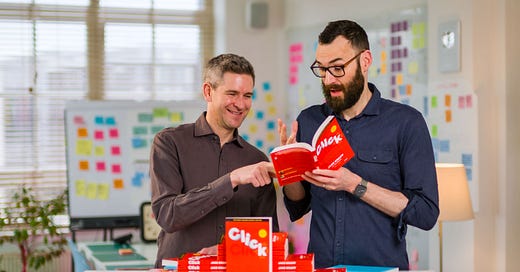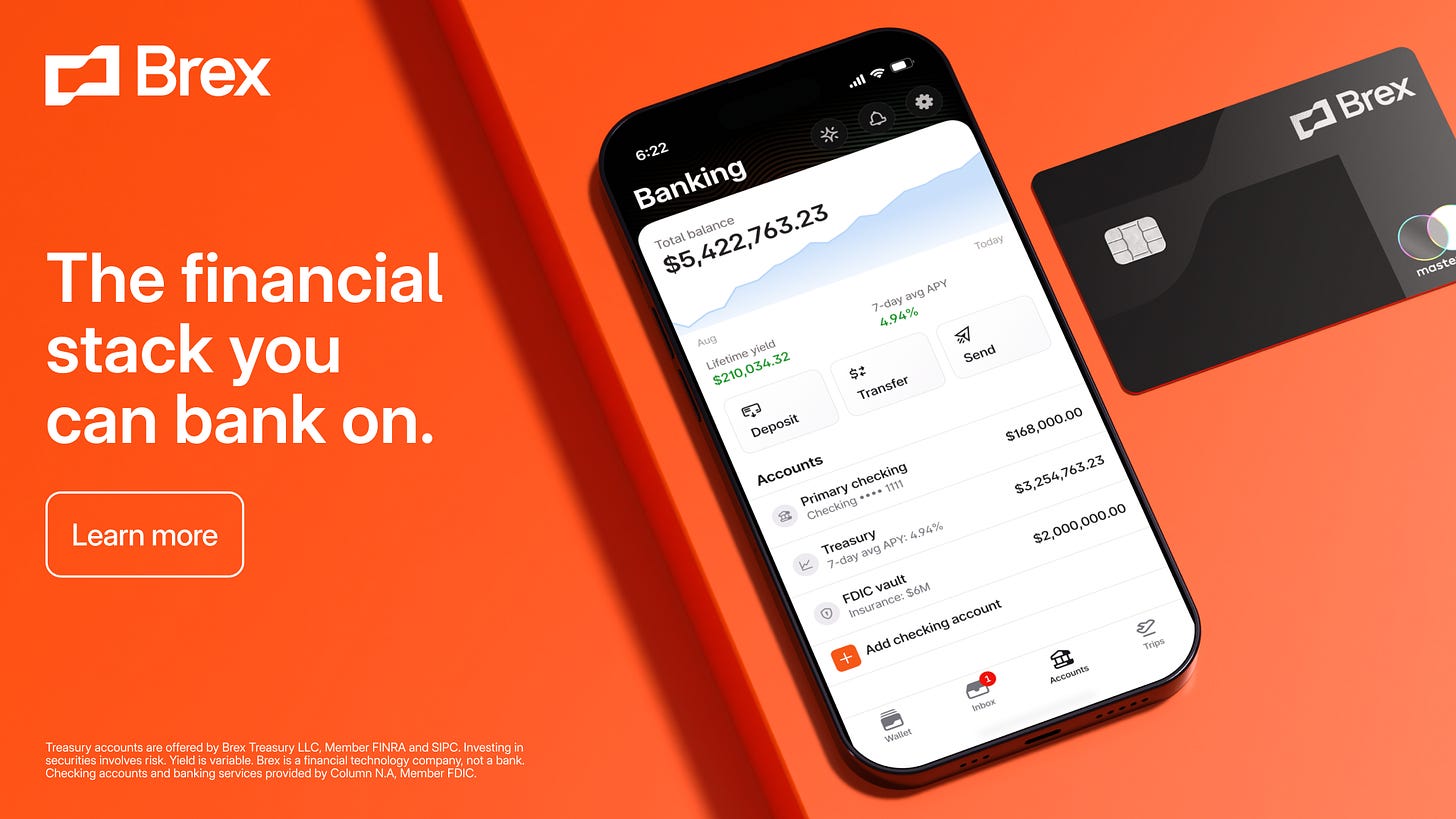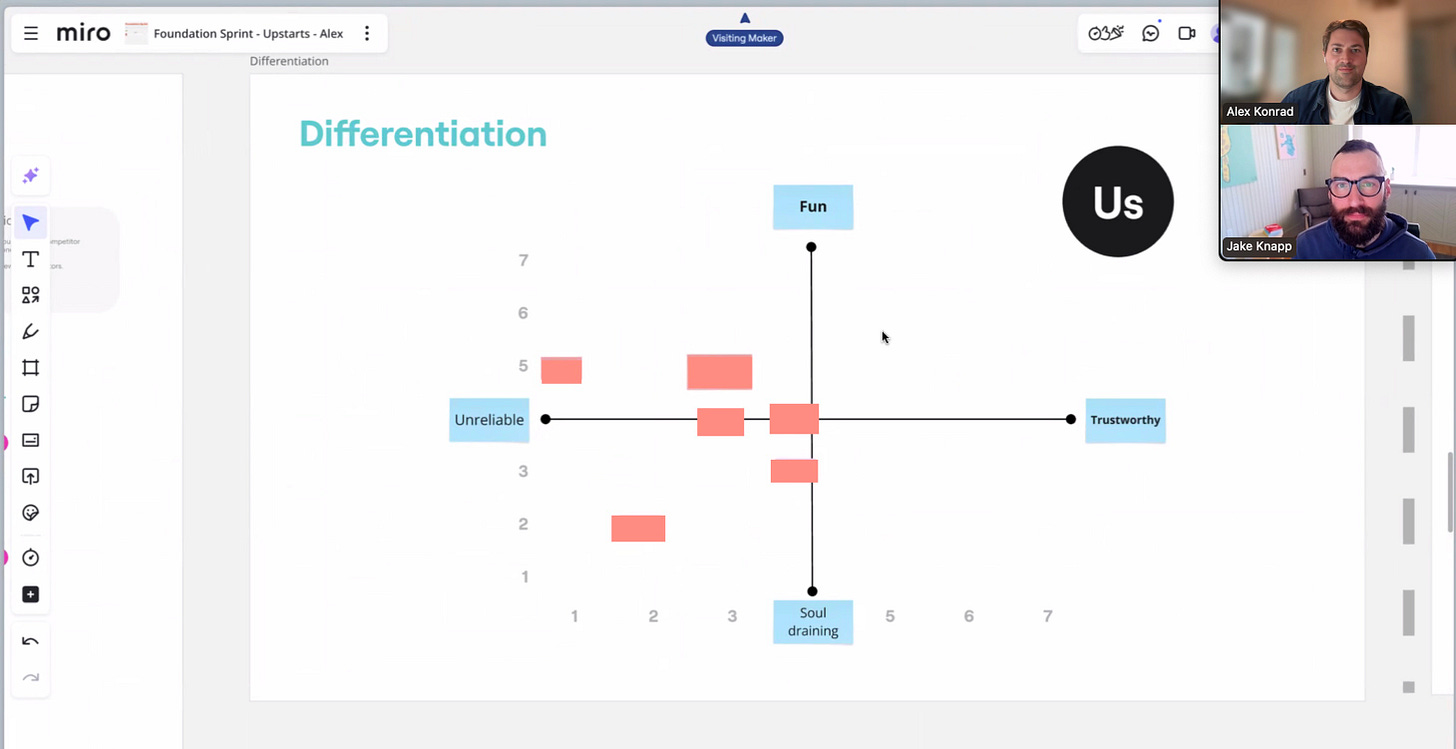The Designer VCs Helping Startups ‘Sprint’ Towards Product-Market Fit
Jake Knapp and John Zeratsky have helped hundreds of founders design products through bestselling books and VC firm Character. Upstarts tested out their new process, the Foundation Sprint, first-hand.
Early-stage startups face the same basic questions: Who is my customer? What problem do they need solving? And why am I uniquely positioned to help?
And just like any other startup, we need to know those answers at Upstarts, too. Which is why on Friday afternoon, I find myself figuratively strapping in, preparing to spend the next three-hours-plus whiteboarding over Zoom and Miro software with designer turned investor Jake Knapp.
For the past decade-plus, Knapp has teamed up with fellow Google product veteran John Zeratsky to pressure-test product ideas with founders in this way. Their intensive five-day sessions worked so well for companies like Gusto, Flatiron Health, Slack, Uber, and even coffee business Blue Bottle that in 2016, they published a bestselling book detailing their Design Sprint process.
Before a founder can get to prototyping, however, they need clarity on those existential questions up top. So Knapp and Zeratsky came up with a new, earlier process, called a Foundation Sprint, that can serve as a startup’s product foundation; then they wrote another book about it, Click, out today.
Along with third cofounder Eli Blee-Goldman, they’ve also worked with nearly 50 startup investments through their VC firm, Character Capital. The low-profile firm raised a $52 million second fund last year that hasn’t been reported until now.
How those founders in Character’s portfolio have used these Sprints – a small taste of which I experienced first-hand with Upstarts – can provide a reminder that as Knapp puts it, there’s nothing more “agonizing” than laboring on a product nobody wants.
“It’s a tool for isolating and crystallizing your intuition about your business,” says Knapp. “It’s elementary stuff, but time and again since we started doing this, it’s proven remarkably useful, even for very sophisticated founders.”
Brex and Upstarts have partnered to provide subscribers a special offer, which includes a point value of up to $500 towards Brex travel or $300 towards cash back, along with unique perks below.
Offer details. Within 3 months of joining Brex earn: (1) 30,000 points after depositing $100,000 in a Brex business account; and (2) 20,000 points after spending $10,000 on Brex card(s). Plus, $5,000 in AWS credits and $2,500 in OpenAI credits just for opening your account. Offer only for new Customers enrolled through this page. Subject to eligibility, approval, and terms of service. Brex can modify or cancel Offer at any time. Non-transferable. Save terms for your records.
Knapp and Zeratsky met as designers at GV in 2012, the venture capital arm of Google parent Alphabet. Knapp had helped build Google Meet; Zeratsky had worked on AdWords and YouTube.
“We took the lessons we saw at GV about how this could provide the basis for a broader advantage, and we took that to the next level with Character,” Zeratsky says. “We want every founder or would-be founder to know we’re the best place for them to start, and that we have the best methods for how to kick off and execute big, ambitious projects.”
Blee-Goldman, who met Zeratsky after he and his wife moved to Milwaukee, was the third puzzle piece. A partner at a local venture firm, Blee-Goldman was impressed by how the “atomic building blocks” of the Design Sprint method could make startups scale faster. And unlike Zeratsky and Knapp, he had experience growing a venture fund.
Blee-Goldman and Zeratsky raised $30 million for Character’s first fund, announced in 2021. Knapp, based north of Seattle, signed on as a part-time cofounder initially and joined full-time last year. Now investing out of its second fund, Character writes checks of up to $2 million.
Notable portfolio companies include industrial AI startup Phaidra, which has raised $60 million total at a valuation exceeding $200 million, per PitchBook; pharmacy startup House Rx, which has raised $30 million; AI note-taker and Granola competitor Fathom, which has raised $27 million; and Orbital Materials, using AI to discover physical materials, which has raised $21 million.
Their four-week accelerator, Character Labs, launched officially in 2023 with a max of 15 startups each cohort. The program offers startups $150,000 for 5% of their business, with founders spending the first three days in-person in San Francisco, where most of Character’s portfolio reside. The remaining sprints take place remotely.
Whether founders are signing up for Labs or an investment from Character’s main fund, the goal is to use Sprints to help the company emerge with a clear sense of product-market fit.
“We believe the most important things to any startup are what the product is, and how you tell the world about it,” Zeratsky adds. “That sounds obvious and dumb, but I think it actually gets neglected and ignored by a lot of the discourse and narrative around startups.”
Inductive Bio cofounder and CEO Josh Haimson first went through Sprints as a product leader at Flatiron Health. In Inductive’s early days, he and his team conducted multiple sprints to test out a tool for helping scientists collaborate with contract researchers, before realizing they’d hit a dead end.
More sprints helped them settle on what Inductive Bio does now, helping preclinical drug discovery by predicting the viability of certain molecules before they’re tested. “There’s a lot of art in the design sprint. You have to both zoom in really deeply to the details of a customer’s use, and also zoom out,” Haimson says.
More recently, founders Mahmoud Arram and Ram Kumar Rengaswamy met Character through an offer to accept pitches in a Slack channel for ex-Google employees. They used the sprint process to test multiple product ideas, including software for ecommerce brands and a consumer app, before settling on their current product, which will look to help companies building AI agents to include ecommerce capabilities.
Working with Zeratsky and Knapp, the founders say they get access to design and consumer tech DNA they would otherwise lack. “They tended to ask the right questions that perhaps we were too afraid to ask, because we were drinking our own Kool-Aid,” Arram recalls.
With a number of other programs available for founders to build early product – including accelerators like Neo, Techstars and Y Combinator, founder residency programs like those at South Park Commons and HF0, and VC firm-led ones like Pear VC’s accelerator PearX, Sequoia’s Arc, and a16z’s speedrun – Knapp says the Character partners “don’t delude ourselves that we’re the only ones.”
But they’re counting on founders still finding value in their unique mix of experiences building and advising products. After all, they already give away much of the so-called ‘secret sauce’ through their books. Some of the magic comes from the prompting and pushing Characters’ partners do. (Cutting them out would be like “reading a textbook versus going to the actual college course,” Arram says.)
It’s a process I experience working with Knapp first-hand, even in just a few hours. Midway through the test session, we land upon two differentiator words that I wouldn’t have predicted would serve as guideline principles for Upstarts: trustworthy and fun.
I hope this newsletter has lived up to both of them. If not, please let us know. We’ll try to do better next time.







